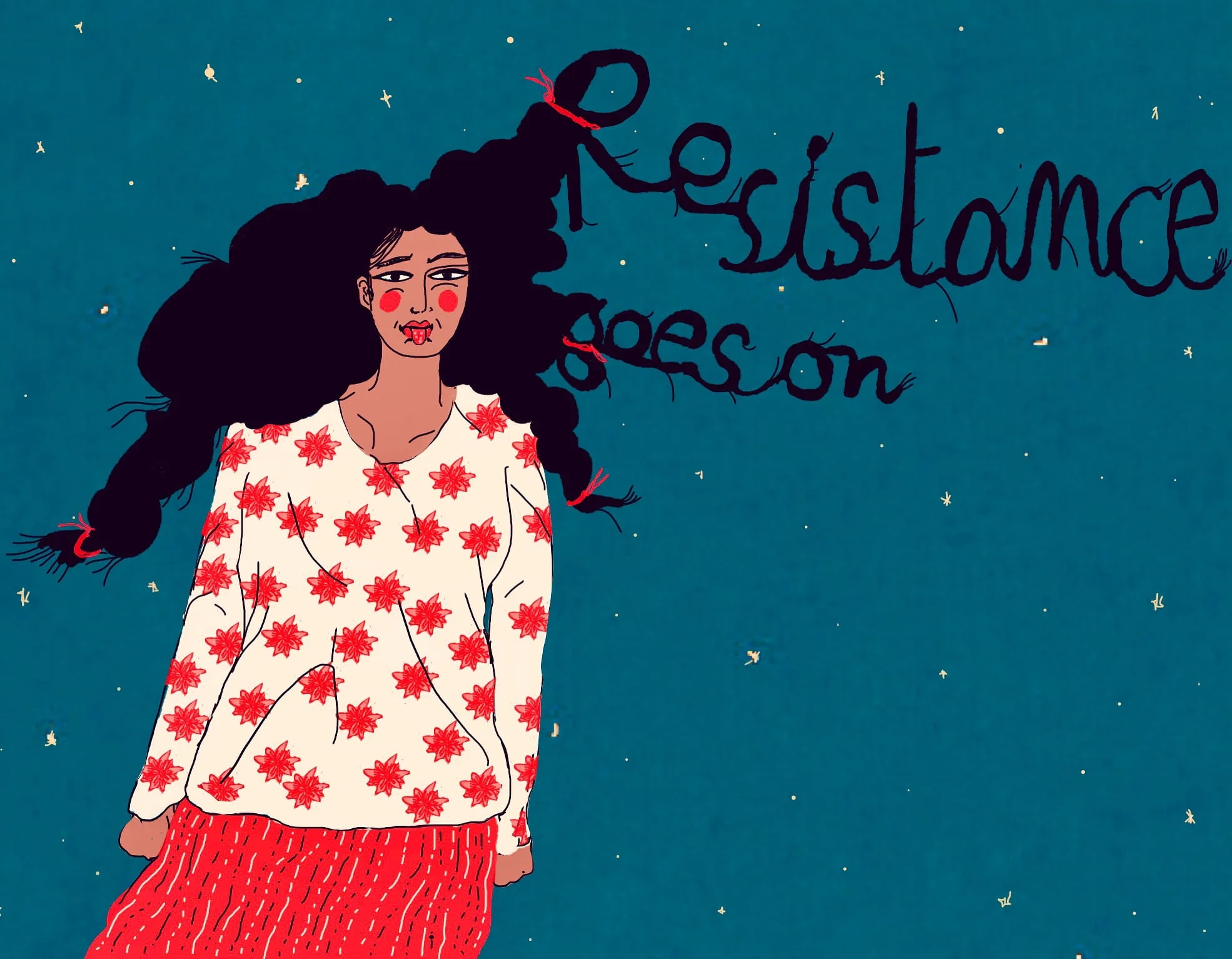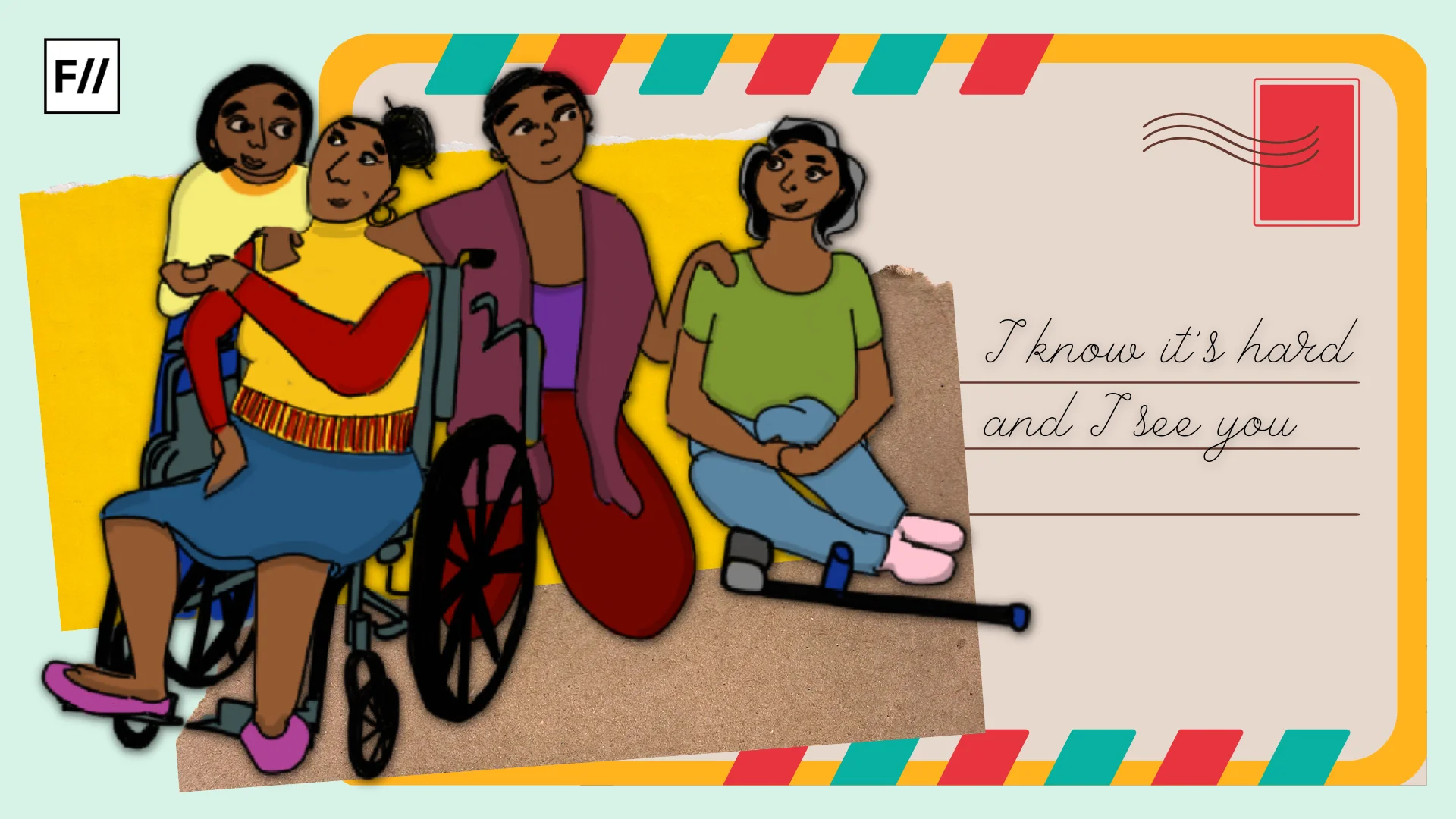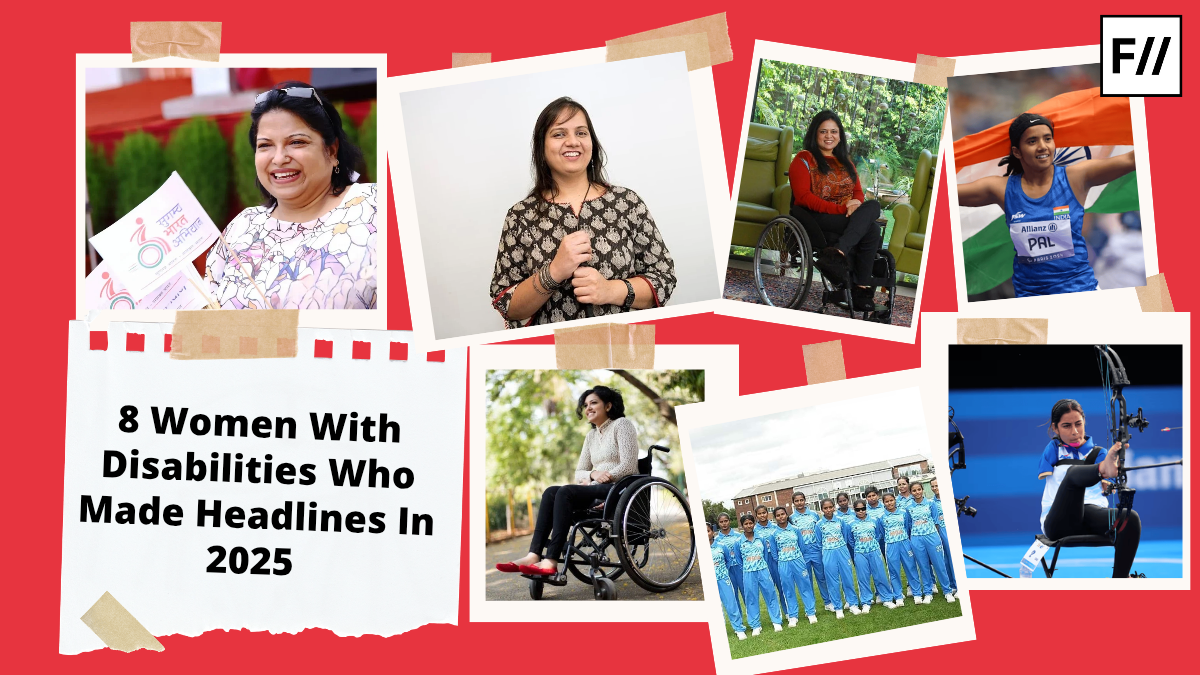Women with disabilities face non-traditional and not easily recognisable forms of abuse where the perpetrator is most often someone we are dependent on for help. Given how most often we have to depend on others to push our wheelchairs and take us to different places, we become susceptible to being controlled and abused by these very people who take on the roles of care in our lives. We often cannot speak about our abuse because we carry with us the shame of dependence. Instead, we often find ourselves having to continue relying on our abuser, especially in unknown spaces, because there is no escape for us.
Disabled women often find themselves trapped in a space at the mercy of a person who controls our movement, our ability to go to certain places, our ability to dress — everything. An underlying fear scores the disabled body’s experience then, simply because dependency can be mistaken as advances seeking love, or the person in control of your whole life can turn on us.
The worst part is that, very often, we physically can do nothing about it, because our body cannot move at our own command.
Also read: Taking Up Space: Reclaiming Physical Realms As A Form Of Disabled Dissent
Dialogues on disabled #MeToo in the feminist movement have been scarce and #DisabledWomenRiot is a campaign that seeks to change that. Through deliberating a discourse on the lived experiences and community of disabled women, non-binary and trans folks, we seek to speak out, speak in, speak up and communicate in whichever way we’re comfortable about our abuse: the specific nuances, logistics and social location of abuse that is often ignored and goes unacknowledged in the larger feminist universe.
Dialogues on disabled #MeToo in the feminist movement have been scarce and #DisabledWomenRiot is a campaign that seeks to change that. Through deliberating a discourse on the lived experiences and community of disabled women, non-binary and trans folks, we seek to speak out, speak in, speak up and communicate in whichever way we’re comfortable about our abuse: the specific nuances, logistics and social location of abuse that is often ignored and goes unacknowledged in the larger feminist universe.
Herein, I’m going to talk about my abuse, particularly locating myself as a cis-gender, physical disabled, queer woman who has dated cis-het men their entire lives (yes, still doesn’t invalidate my bisexuality – I don’t have to “do” something with a woman to be considered bisexual and prove my identity to a heteronormative world), I have gone through varied form of abuses: physical, sexual, emotional and mental. I would also like to clarify how this has been experience: I speak only for myself.
The thing about dating cis-het men is that my agency is questioned from time to time.
How do we go beyond surface level evidence of abuse into the deep nuances, the rooted ableism of viewing disabled women not as humans, but as objects of novelty? Objects that only exist to show the world how good these men are for making space for these “poor”, “crippled” women in their lives. These are women whom nobody wants or desires. These are women who only deserve the bare minimum and probably not even that. These are women who’ll be there no matter what, because it is not like they can get up and go somewhere. Disabled women are often viewed in the light of purity and innocence: they don’t have a choice, they can’t cheat, they’re dependent. What happens when we want to say no, but we can’t? What happens if we’re deaf or have a speech disability that makes us too overwhelmed during intimate situations and struggle with boundaries? Is the solution just to stop engaging in sexual intimacy? Why should we? Why should the onus be on us?

Abusive cis-het men can mould disabled women into any shape they desire. The man I dated gradually came to control and police all areas of my life: what I wore, what I ate, who I interacted with, who I spoke to on social media, who my friends were, what I told my parents, etc. Women with disabilities face forms of abuse that are rooted in our basic needs. Sometimes, our abuser is a partner who becomes our self proclaimed caregiver. We are then dependent on them for our basic needs: Be it taking medication on time, going to the bathroom, movement in public spaces, to movement in private spaces.
My abuser soon began to control everything and my internalised ableism kept convincing me that this man is nice, kind hearted, takes care of me and is doing me a huge favour because no one else views me as desirable. So I felt obliged to be thankful that he finds me desirable despite my disability and that he wants to engage in sexual intimacy with me, even though I’m “ugly and disabled”. Disabled women are taught from a very young age to be grateful for the help that they receive in their life, because their existence is considered fundamentally undesirable. They are a burden on their parents who can’t marry them off or give them an education. With this mindset, we grow up to be underconfident and are taught that we must depend on others for our happiness. We would be made to believe that we’ll never be enough for ourselves.
Disabled women are taught from a very young age to be grateful for the help that they receive in their life, because their existence is considered fundamentally undesirable. They are a burden on their parents who can’t marry them off or give them an education. With this mindset, we grow up to be underconfident and are taught that we must depend on others for our happiness. We would be made to believe that we’ll never be enough for ourselves.
I’ve noticed that my abuse has been intrinsically connected to my physical disability, to logistics and to the social situation that I am in. Many times, I have across a situation where I’m at the mercy of someone else in a public space. This then translates to how I shouldn’t show dissent, should not disagree with them and should not be in a conflict situation. I should toe the line of the stereotypical idea of the ideal disabled woman—non-assertive, a “good” quiet and an obedient girl. I say a disabled girl here and not women because we are de-feminised and denied basic aspects of femininity, the concept of disabled womanhood and are lost in a sea of unheard marginalised feminist voices.
The 60-year old non-disabled man who had kissed me on my cheek said, “But I was drunk!” and “I treat all 19 year old children the same way!” He claimed that he treated everyone in the same seemingly fatherly intimate way and that I was just overreacting. His 20-year old son had agreed too as I wiped away my tears because no one believed me. I would repeatedly wash my hair with fistfuls of shampoo to wash away his kiss on my forehead: a kiss I never wanted.
I felt the same way when a stranger took my inability to button up my shirt due to my disability, as a suggestion for him to unbutton it and give him access to my bare disabled body.
Also read: Internalised Ableism, Self Blame, Self Hate And Body Shaming
The first time I fell in love was with an emotionally abusive, neglectful person. “But at least he doesn’t sexually abuse me. At least he’s kind to me. At least he gives me agency.” Atleast, atleast, atleast…
The reason I didn’t say no when my first boyfriend forcefully slapped me in bed under the guise of being “kinky” or that he “accidentally” gave me a black eye, or that he emotionally manipulated me into sexual relations, was because I kept on thinking—“I hope this gets over soon, I don’t want to displease him. Right now I’m safe, but what if I anger him?”.
Featured image source: Alia Sinha
About the author(s)
Anusha Misra prefers to be called nu, identifies as a disabled, queer woman. They are a disability justice author, curator and editor. They are the founder and Editor-in-chief of Revival Disability Magazine, a magazine on Disability, Sexuality and Intersectional Ableism. They firmly believe that Intersectionality gives disabled women the emotional skin to survive in the world and that vulnerability should be celebrated. According to them, the revolution would be incomplete without disabled joy and dissent.




